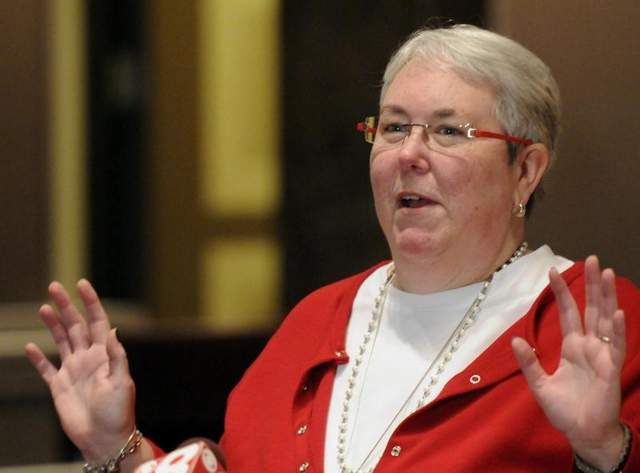In recent years, local and state governments have disclosed more information to the public about tax breaks, grants, and other subsidies they give corporations.
We at Good Jobs First have been leaders in pushing for much of that improved transparency. After all, you can’t know if a subsidy is effective if you don’t know which company got one, how much they got or what they are required to do in return.

But Alabama remains an exception. Unlike most states, it still fails to meaningfully track what the public is getting for the billions it gives to businesses to open or expand operations. There is no place residents can even find a complete list of which companies are getting corporate subsidies.
Worse, as former Alabama State Rep. Patricia Todd learned first-hand, the state goes even further in its secretive dealings: It hides even the most basic information related to these deals, even long after they are finalized.
Todd wrote about these transparency and accountability failures, and what must be done to improve them, in a new report by Jobs to Move America. “ The Hidden Costs of Alabama’s Tax Incentives ” argues that the state must start releasing at least basic information about economic development subsidies. Ideally, it would go much further.
Todd was elected state representative in 2006 and served until her retirement in 2018. She is currently the Southern Policy Manager for Jobs to Move America (JMA). I talked to Todd about JMA’s new report and what comes next in the battle to get the state to open up the books.
Todd responded by email to my questions from Birmingham.
Q: I’ve always been curious how much information elected officials get on deals involving economic development subsidies to companies (knowing that some states are better about disclosure than others). What was the process like in Alabama? What kind of specifics did you get on costs and benefits?
A: Legislators do not receive detailed information about tax incentives. 2020 was the first year that legislators required an overall report on incentives that included the type of incentive, number of applications received and approved, as well as the total fiscal cost. The report does not include the names of the corporations that received the incentives.
Editor’s note: The report also fails to disclose how much each successful applicant received, how many jobs companies claimed they’d be creating, projected capital investments or any other way to determine how the giveaways would benefit communities.
Q: Was there a moment when it struck you, like, wait a minute here, this process seems… incomplete. Was there a specific deal or conversation?
A: When I was approached to support a tax incentive for farmers’ water integration systems, I said I would support it as long as there came be an economic impact that included the total number of awards, fiscal impact and increase in production of crops due to the irrigation systems.
A year later they provided that report and I thought, “Why don’t we require this for all incentives?”
Q: What’s the impact of these subsidies on the everyday lives of Alabamians?
A: We really don’t know. The process for approval, agreements, and other information is exempt from not only the Public Records Act, but elected officials, as I learned firsthand, don’t have access to that information either. Incentive supporters report that they lead to job growth, but I question if they are good jobs paying a living wage. The incentives are not required to pay a living wage.
Q: What kind of response has your report been getting?
A: Alabamians are shocked at the amount of money and lack of transparency. All they see is the ribbon cutting at a new plant and the promise of new jobs. The media, like the public, doesn’t ask about taxpayers’ costs or return on investment. I think this is partly because of how secretive this process has been for so long.
Q: What do you see as critical next steps in getting some change around the way this process works in Alabama?
A: We will be working with legislators to support bills to require a third-party review of incentives’ impact and require a Unified Economic Development Budget [ developed by Good Jobs First ]. We want the third-party evaluation of incentives done outside, instead of a report by the state agency that administers the incentives. Tax-break cheerleaders cannot also be cops.
See also:
5 questions with Dick Lavine: Texas’ Big Tax Breaks
5 questions with Jane Vancil: Auto-tracking subsidy outcomes
5 Questions With Ioana Marinescu : Low-Wage Earners Face Harsher Working Conditions
5 Questions with Tom Speaker: New York Breaks Up With Opportunity Zones
5 Questions with Joel Bakan: Ending Corporations’ Stranglehold on Society
5 Questions with Michelle Dillingham: Cincinnati’s TIF Crusader